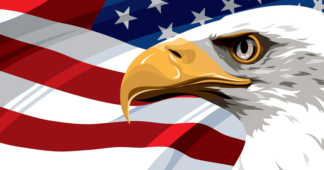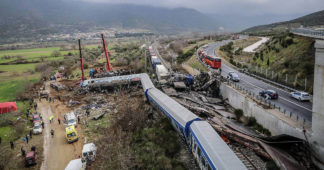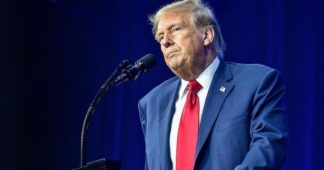Interview to Dimitris Konstantakopoulos
What are the aims of Trump’s “tariff storm” and his other policies? What results will they yield? What will happen to the dollar and the BRICS? Where is Europe heading? Is there a chance of a military conflict between the U.S. and China? Why did the Chinese succeeded where the Soviets failed? Why is economic science in crisis? Can we endlessly develop productive forces while ignoring the planet’s natural limits?
These and other questions are answered by one of the world’s most renowned economists, a proponent of Keynesianism and a critic of neoliberalism, Professor James Galbraith, in the interview he granted to Dimitris Konstantakopoulos.
James Galbraith is teaching at the Lyndon B. Johnson School of Public Affairs at the University of Texas, where he leads the program on inequalities, and at the Levy Economics Institute of Bard College. He is also a member of the Executive Committee of the World Economics Association and the president of the organization “Economists for Peace and Security.” The son of one of the greatest and most influential economists of the 20th century, John Kenneth Galbraith, James Galbraith has also served as executive director of the U.S. Congress’ Joint Economic Committee and he advised the Chinese government in the context of a UN mission. His views influenced, to some extent, partially, the way the US administration handled the 2008 crisis. Galbraith has also been a critic of the unending U.S. military interventions. His last book is called “Entropy Economics. The Living Basis of Value and Production” and is published by the University of Chicago Press.
The American economist believes Trump will not succeed by his measures to bring industry back to the U.S. or address its other problems, whose roots lie in the financialization and militarization of the American economy over many decades.
As for China, it is not an easy adversary, given its enormous internal market and its scientific and technological basis, the largest in the world. However, Galbraith believes Trump will manage to deal a serious blow to the global economy by disrupting international trade relations, while he has already damaged the dollar.
Galbraith laughs when asked to comment on the “European reaction” to the tariffs. “Do you know of any such reaction?” he replies. The EU is in the worst shape of all due to its own structure, as well as its extreme neoliberal economic philosophy and German ordoliberalismus. Things became much worse as a result of the policy of the EU regarding Ukraine which led to Europe losing the access to cheap and credible sources of energy, i.e. the Russian natural gas.
James Galbraith is very sceptic regarding the possibility of realizing the ambitious European Rearm program, given the differentiation of the armaments industry inside Europe. Most probably all that will lead to more imports of arms from the United States and this will not be beneficial for the European economy.
He also questions the necessity of a European Rearm program. He does not see any reason for Russia or NATO to attack each other and he believes Europe would do much better by seeking a peace treaty with Russia, providing for no intervention in each other’s internal affairs.
He does not believe a direct military confrontation between the U.S. and China is very likely, despite frequent debates on such a scenario in the U.S. As for the reasons behind Chinese success where Soviets failed, he believes one of the main reasons was the failure of Soviets to provide enough consumer goods of high quality to their population, in particular in the context of Cold War and huge military spending. Another reason was the very rigid, hyper-concentrated form of Soviet as opposed to the Chinese economic planning.
He criticizes Trump for dismantling the few remaining state institutions in the U.S., which do function, such as social security. And he believes that economic problems cannot be solved without some form of planning—a key lesson from East Asia, especially China.
James Galbraith strongly challenges neoclassical economic theories that rely on the axiom that markets tend spontaneously towards equilibrium. On the contrary, he believes strongly to the necessity of introducing the notion of entropy into the study of economic phenomena.










